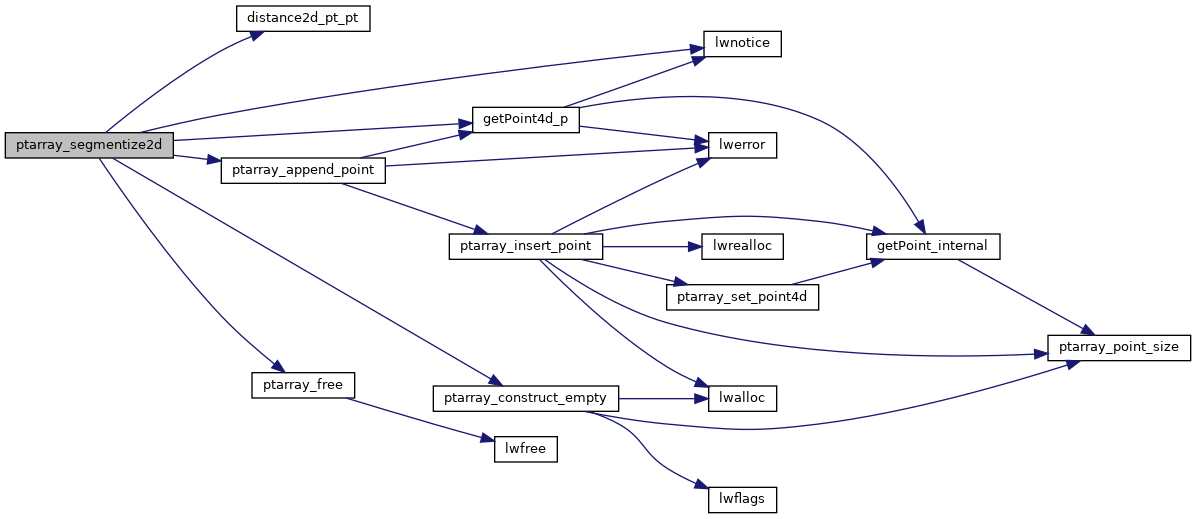◆ ptarray_segmentize2d()
| POINTARRAY* ptarray_segmentize2d | ( | const POINTARRAY * | ipa, |
| double | dist | ||
| ) |
Returns a modified POINTARRAY so that no segment is longer than the given distance (computed using 2d).
Every input point is kept. Z and M values for added points (if needed) are set proportionally.
Definition at line 413 of file ptarray.c.
double distance2d_pt_pt(const POINT2D *p1, const POINT2D *p2)
Definition: measures.c:2397
int getPoint4d_p(const POINTARRAY *pa, uint32_t n, POINT4D *point)
Definition: lwgeom_api.c:125
POINTARRAY * ptarray_construct_empty(char hasz, char hasm, uint32_t maxpoints)
Create a new POINTARRAY with no points.
Definition: ptarray.c:59
int ptarray_append_point(POINTARRAY *pa, const POINT4D *pt, int repeated_points)
Append a point to the end of an existing POINTARRAY If allow_duplicate is LW_FALSE,...
Definition: ptarray.c:147
Definition: liblwgeom.h:375
Definition: liblwgeom.h:399
Definition: liblwgeom.h:412
References distance2d_pt_pt(), POINTARRAY::flags, FLAGS_GET_M, FLAGS_GET_Z, getPoint4d_p(), INT32_MAX, LW_FALSE, LW_ON_INTERRUPT, LW_TRUE, lwnotice(), POINT4D::m, POINTARRAY::npoints, ptarray_append_point(), ptarray_construct_empty(), ptarray_free(), POINT4D::x, POINT4D::y, and POINT4D::z.
Referenced by lwline_segmentize2d(), and lwpoly_segmentize2d().
Here is the call graph for this function:

Here is the caller graph for this function:
